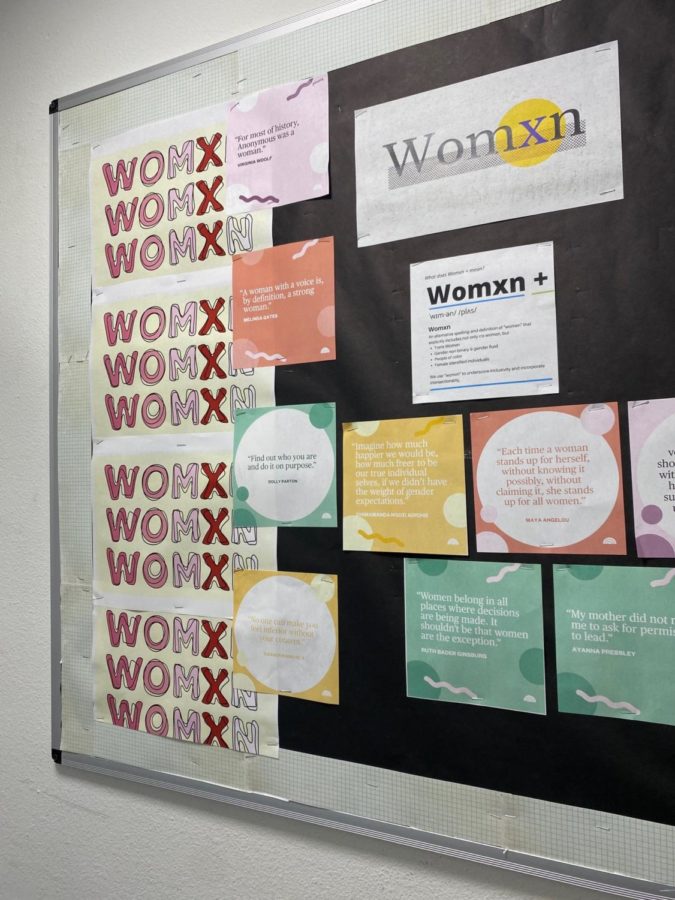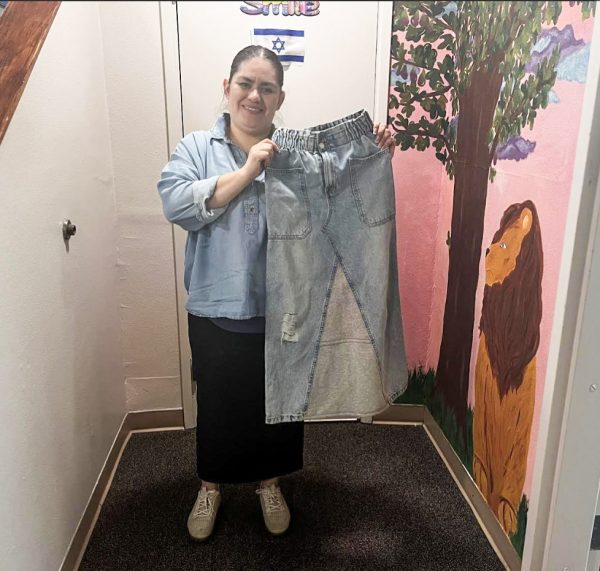Women’s history month met with resistance
March was Women’s History Month, a time to celebrate the achievements of women and shed light on the oppression women have faced. This year, the NYHS administration decided to plan advisory lessons, workshops, and a town hall around Women’s History Month. Despite their efforts, many students did not take the programming seriously.
NYHS science teacher Paige Reed led Women’s History Month because she wanted to make the school community aware of the struggles women endure, and “the easiest way to make something happen is to do it,” she said. Reed’s hope was that “the women in our school feel more empowered to speak up if they feel prejudiced against and that the male students will recognize the situation and the extra challenges added on to life just for being a woman.”
The month of lessons was created in response to comments and jokes the administration found inappropriate. “The school culture has somewhat come to normalize comments that are insensitive towards each other or towards women in the school,” said sophomore Rose Clayman.
During the month of March, NYHS students attended lessons about women, with topics like women in STEM and inequity in athletics, learning about the issues and triumphs of the women in these fields. The administration also held separate-sex workshops by outside instructors. The women talked about anxiety, stress and women who inspire them. The men learned about the term “toxic masculinity” and discussed how to deal with the fear of showing parts of themselves that they perceive as feminine. They were also taught how to respond to accusations of assault or harassment.
“It’s good to reestablish how to respond when those things happen, because those are things that happen in everyday society, so it’s good to learn how to approach that in a respectful manner,” said Clayman. Clayman also said she appreciated having workshops to help “draw the line between what is respectful to say and what isn’t.”
However, others felt differently. Freshman Cohava Hassan felt the lessons were more negative than they could have been, and that the administration was overreacting to jokes that shouldn’t have been taken seriously. She felt that the comments people had been making were acceptable and that she didn’t really see the problems administration was teaching about. Senior Ella Endres added, “Talking more about oppression and recognizing it is important. But I think we need to talk about what women have done and focus more on the positive.”
Reed noticed that the student body resisted the programming. “A huge misconception about feminism is that it’s anti-men, but really it’s about everyone being equal,” she said. “Just because we are talking about one group’s struggles doesn’t mean we invalidate other people’s struggles.”
No boys agreed to be interviewed for this article. Some cited fears of retribution for sharing their critiques of the month. However, one boy who asked to remain anonymous shared that the forced nature of the learning could have made students take it less seriously. “When stuff is forced, a lot of students zone out,” he said. “It didn’t require paying attention, so no one listened.”
In addition to pushback on the messaging of Women’s History Month, another source of confusion was the introduction of the term “womxn.”
The term was used on some posts on Schoology, was put on a bulletin board celebrating Women’s History Month, and was introduced and explained in advisory classes. According to Amherst College, “The term womxn is intended to center women, as well as to more explicitly include trans women and women of color.”
Many students were overheard discussing that if someone is a trans woman they are just a woman, and it doesn’t seem helpful to put them in their own box. There was some confusion as to what the term meant. “When we first learned about womxn in class I was kind of confused, and without any other information I felt like it was a bad term or that was kind of destructive,” said sophomore Becca Benezra. Benezra says she later came to understand that the term is trying to include people who don’t normally have a voice, but she wishes the term could have been taught in a clearer way.
Reed says it can be hard to convince people that something is an issue if they don’t see it happening, but she is optimistic that next year will go more smoothly. “I hope that next year students want to be part of the planning,” she said. “I’d like to see students taking more initiative next year.”












